






HEIDI HEILBRUNN NEEDLEMAN
Assistant Director, JFO Engagement and Education and SARA KOHEN
Friedel Jewish Academy Director of Advancement
Super Science Sunday—a fun, interactive program for families with children in pre-kindergarten and younger—will return on Sunday, Feb. 9, at 10 a.m. at Friedel Jewish Academy.
PJ Library and Friedel are partnering once
again for this exciting educational program, which will kick off with a captivating performance of The Amazing Bubble Show by The Omaha Children’s Museum.
After the show, families will join Friedel teachers for hands-on STEM activities, including painting with bubbles. Each participant will take home their own, unique piece of artwork. Families will also make bubble wands and learn to count in Hebrew using bubbles.
The free program is open to families with children ages five and under who are part of See Super Science Sunday page 3

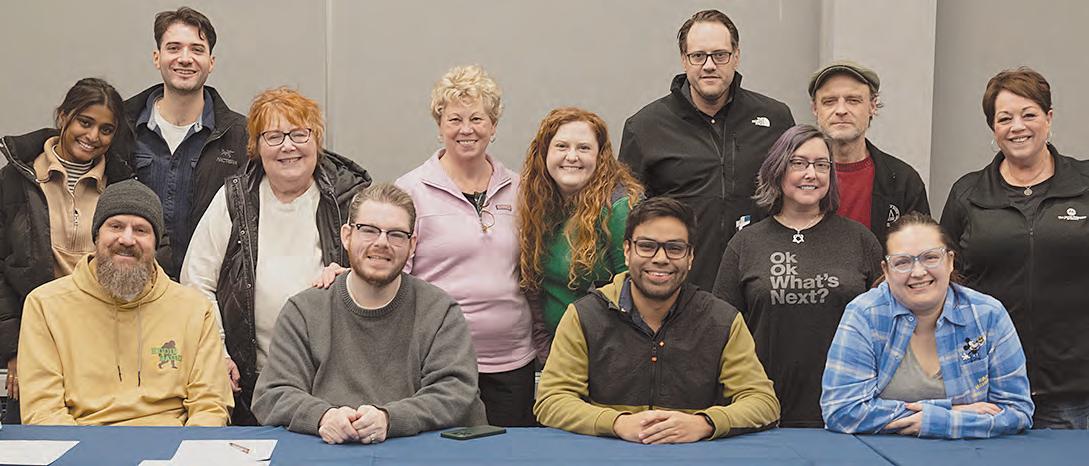
MARK KIRCHHOFF
JFO Community Engagement and Education
On Dec. 19, the 16 members of the Intro to Judaism class and instructor Jill Idelman met for the last of 12 sessions at the Staenberg Omaha Jewish Community Center. The final session was a rabbi panel in which Rabbi Steven Abraham of Beth El Synagogue, Rabbi Mordechai Geiger of
STACIE METZ
Beth El Synagogue
Beth El Synagogue is honored to welcome Amir Tibon, an awardwinning diplomatic correspondent for Haaretz and the acclaimed author of The Gates of Gaza: A Story of Betrayal, Survival, and Hope in Israel’s Borderlands, on Tuesday, Jan. 28, at 6 p.m. Tibon’s new book
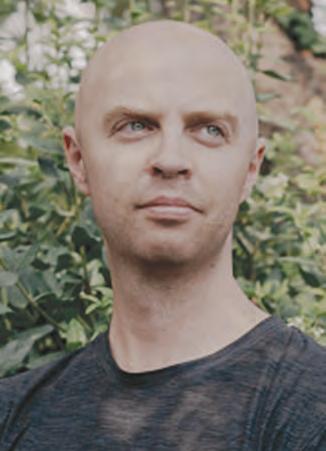
recounts his harrowing experience on October 7, 2023, when Hamas militants launched a brutal attack on Kibbutz Nahal Oz, where he lived with his wife and two young daughters. In a tale that blends raw emotion with expert analysis, Tibon reveals how his family narrowly escaped to safety, rescued by his own father, and examines the systemic failures and tensions that led to that day’s devastating events. Already featured on 60 Minutes The Gates of Gaza has been hailed as both a gripping survival story and a critical lens on Israel’s challenges. Film rights have been acquired by Leviathan Productions, with Fauda creators Avi Issacharoff and Lior Raz set to bring Tibon’s story to the big screen.
Beth Israel Synagogue, and Rabbi Benjamin Sharff of Temple Israel answered questions the class participants had formulated throughout the year. Among the questions were, “What are Judaism’s religious beliefs regarding the afterlife?” “How do I explain the stories in the Hebrew Bible that feel ‘impossible’ or ‘unrealistic’should everything be taken literally
See Intro to Judaism page 3
Tibon’s journalistic career has made him one of Israel’s most respected voices. As Haaretz’s Washington, D.C., correspondent, he covered key moments in U.S.-Israel relations during the Trump and Obama administrations. He has also served as a senior editor for Haaretz’s English edition, bringing nuanced perspectives on Israeli politics and the Israeli-Palestinian conflict to global audiences. In addition to The Gates of Gaza, Tibon is the co-author of The Last Palestinian: The Rise and Reign of Mahmoud Abbas, the first comprehensive biography of the Palestinian Authority leader. This event offers a unique opportunity to hear Tibon’s firsthand account of survival, alongside his analysis of the deeper challenges facing Israel. The evening will provide See Amir Tibon page 3

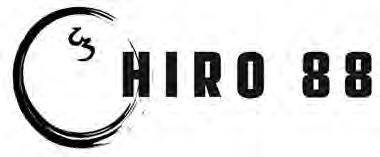
BRAD
JFO
I grew up in a traditional Jewish home in Omaha, where my observance deepened over time, creating a life rich with cherished Jewish memories. In the early 1980s, I attended the Jewish Day School (now Friedel Jewish Academy) which was located at the current site of Beth Israel Synagogue, and I was part of its first graduating class that completed all grades, K-6.
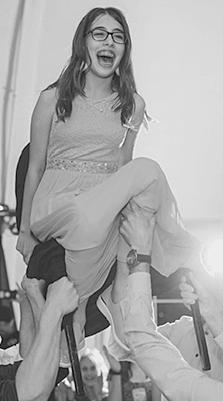

fast, and I wouldn’t want to be anywhere else. What are you doing today?
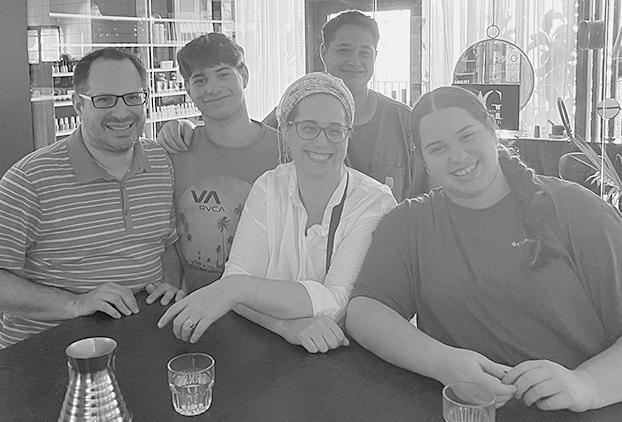
The JCC was a central part of my youth—I attended pre-K there, spent afternoons in the game room, summers at Camp Chaverim, and countless days at the outdoor pool. I also participated in Hebrew High School, led by Stanley Mitchell, and many other programs such as cooking classes, breakdancing classes, and Matzah baking sessions.
One of my first jobs was in the JCC library, where I worked the evening shift, and developed my love for reading. Later, I worked for three summers as a dietary aide at the Rose Blumkin Home, baking hundreds of cookies and sharing special moments with my grandfather, a resident at the time.
I have fond memories of Beth Israel Synagogue on 52nd Street and walking to the Chabad House for Shabbat and holidays as I became more observant. Friends from Beth Israel and NCSY youth programs were instrumental in shaping my path. I also enjoyed events at Beth El and Temple Israel, forging lifelong friendships along the way.
I can’t forget trips to the Kosher butcher, the Kosher Pickle delicatessen and, of course, Bagel Bin, whose bagels remain unmatched—even during my time in New York City. On our last visit to Omaha, my kids tried nearly everything on the menu!
My Jewish Omaha upbringing provided the foundation for much of my current observance, and I treasure the memories and community that shaped my journey. Where are you living now?
Currently, I am living in Haifa, Israel, with my wife, Rebekah, and our kids, Nathan, age 18, and twins, Elke and Alexander, ages 16. We made Aliyah to Israel from Riverdale, New York, in 2014, and it was the best decision for our family! It is difficult to be so far away from my parents and brothers who are still in Omaha and other parts of the US, but we make it work!
Even with the recent threats coming from our neighbors to our North, Israel and the Jewish people are resilient and stead-
I work as a business continuity professional, helping companies stay resilient during crises. After eight years with a global high-tech software company, I’m now seeking my next opportunity.
My wife, Rebekah, runs a successful organization business, Balagan Be Gone, offering online decluttering coaching worldwide. She’s also the author of Organized Jewish Life: The Essential Guide for Planning Jewish Holidays, Events, and Every Day and other companion works.
This summer, my oldest son, Nathan, will be drafted into the Israel Defense Forces. I’m incredibly proud of his commitment to serve his country though, as a parent, I also worry for his safety. I trust in prayers and God’s protection to watch over him. When was the last time you were in Omaha, and what was the biggest change?
I visited Omaha this past June/July 2024 with my kids and was amazed at how much the city has expanded. My parents’ home is near 132nd and Pacific Street, and I’m surprised at the western expansion of the city. Attending the Omaha Storm Chasers (still “Royals” to me!) was much more convenient than Rosenblatt Stadium used to be. Major intersections now all have large shopping centers, and even the JCC has had a significant upgrade. I enjoyed visiting the JCC outdoor pool with my kids and found it ironic that I could now stay in the pool during adult swim—times have certainly changed!
We’re planning another trip to Omaha this May 2025 to celebrate my parents, Lynne and Errol Saltzman’s 50th wedding anniversary. My mom is planning a big celebration!
I’d love to hear from old friends and acquaintances. If you’re visiting Israel or have questions about our Aliyah, feel free to email me at ems1022@hotmail.com
The award-winning B’NAI B’RITH BREADBREAKERS speaker program currently meets Wednesdays via Zoom from noon to 1 p.m. Please watch our email for specific information concerning its thought-provoking, informative list of speakers. To be placed on the email list, contact Breadbreakers chair at gary.javitch@gmail.com
Continued from page 1
that is in Torah?” “In the lighthearted stereotype seen in pop culture, why do rabbi’s often answer a question with another question?” The answers from the rabbis provided not only an opportunity for the class to learn more about Judaism, but also to observe the camaraderie of the rabbis from different denominations and how these differences enhanced their answers.
Jill Idelman is a member of Temple Israel and has a background in Jewish and secular education. “I enjoyed this first year of teaching the Intro to Judaism class,” she said. “I especially wanted to provide opportunities for active involvement in the community that allowed participants to both learn about and experience Judaism.” The class participated in a Shabbat evening service at Beth El, a Shabbat morning and Bat Mitzvah service at Temple Israel, and the celebration of Simchat Torah at Temple Israel, as well as a Havdalah celebration at Beth Israel synagogue. Classroom topics included What do Jewish People Believe? with Rabbi Emeritus of Temple Israel Aryeh Azriel; People of the Book; Death and Mourning, and other topics central to learning Jewish beliefs and practices.
Pertinent guest speakers were a part of the course. Harmon Maples, Nebraska Community Engagement Manager of the Anti-Defamation League, explained the mission and activities of the organization. Scott Littky, Executive Director of the Institute for Holocaust Education shared the importance and purpose of the programing of his agency. To bring the flavor of Israeli cuisine to the class, Community Shlicah Mika Mizrahi conducted a cooking session and discussion of Israeli culture.
People participate in Intro to Judaism for a variety of reasons. One person shared, “I have been participating in Jewish traditions with my husband, not being Jewish myself. When we had our son, it became very important for me to learn as much as I can as I raise a Jewish son.” One person’s comments after the last class are reflective of what many said, “I loved this class – learning more about Judaism has made me realize how beautiful this religion and culture is – more so than my [Jewish] grandpa ever showed me. I loved calling my grandma after class to chat about what we learned.”
The Bruce M. Fellman Charitable Foundation Trust has announced the availability of scholarships for the 20252026 academic year. The scholarships will be based on financial needs of students pursuing their post-secondary education. This scholarship has a four-year cap and is limited to undergraduate studies only. Graduate programs are not included.
Bruce, son of Tom and Darlynn Fellman, was a 1982 graduate of Westside High School. He was active in BBYO and served as president, vice president, secretary and treasurer of Chaim Weizmann AZA. He attended George Washington University in Washington, D.C. and was participating in the University of Pittsburgh’s Semester at Sea at the time of his death in 1984.
The Robert H. & Dorothy G. Kooper Charitable Foundation Trust has announced the availability of scholarships for the 2025-2026 academic year. It will be based on financial need for Jewish students with ties to the Omaha community who are pursuing their post-secondary education. This scholarship has a four-year cap and is limited to undergraduate studies only. Graduate programs are not included.

service to the Jewish community. He was elected B’nai B’rith president in 1929; headed Beth El Synagogue in 1941; was president of Highland Country Club in 1951; and was President of the Jewish Federation of Omaha 1958-1960. He died in 1961.
Mrs. Kooper was a strong supporter and worked with the Jewish Federation and Beth El Sisterhood. She passed away in May, 1995.
“Awarding a scholarship to a young
Jewish person is a very appropriate way of honoring my parents” Howard Kooper noted. Applications may be obtained by contacting Jan Roos in Mr. Kooper’s office (402.384.6471 or jroos@broadmoor.cc) or downloaded from the Jewish Federation of Omaha website, click on Our Priorities, then Scholarships and Grants, then Additional Scholarship Opportunities. The application packet must be received back in Mr. Kooper’s office no later than March 3, 2025

The twelve-session course of Intro to Judaism is offered yearly. Future dates for 2025 will be publicized soon. For those interested attending the 2025 class, contact Mark Kirchhoff at mkirchhoff@jewishomaha. org or 402.334.6463 to place your name on the list of potential participants. More information about the class is available on the Jewish Federation of Omaha’s webpage, jewishomaha.org/ community-engagement/adult-jewish-education/ or by using the QR code accompanying this article.

Continued from page 1 the Omaha Jewish community, as well as students at the Pennie Z. Davis Early Learning Center, and Friedel Jewish Academy. Grandparents are also welcome. RSVP is available online at igfn.us/form/R6UWUQ or through the QR code provided. Super Science Sunday is supported by The Chesed Fund, the Etta & Harold Epstein Security Fund, the Foundation IMPACT Grant, the Milton S. and Corinne N. Livingston Foundation Fund, and the Morton A. Richards Youth Program Fund.
For more information or questions, please contact Heidi Heilbrunn Needleman at hheilbrunn@jewish omaha.org or Sara Kohen at skohen@fjaomaha.com

Continued from page 1 unparalleled insight into the personal and political dimensions of life in Israel’s borderlands.
As a preview to the event, Rabbi Abraham will lead a discussion about The Gates of Gaza on Sunday, Jan. 21, at 6 p.m., following Evening Minyan. Don’t miss this extraordinary evening with Amir Tibon at Beth El Synagogue on Tuesday, Jan. 28 at 6 p.m.

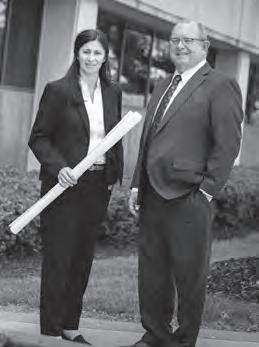

At AKC Law, we know that earning trust doesn’t happen overnight. That’s why we've been working hard to build long-term partnerships with our clients since 1944. Our attorneys combine years of experience with passion and creativity to provide you with the highest quality legal advice in business law, litigation, and trusts & estates.



















HEIDI HEILBRUNN NEEDLEMAN
Assistant Director, JFO Engagement and Education
Tzedek Teens will be “Cooking Up Hope” on Sunday, Feb. 23 from 3:30-6:30 p.m. The volunteer group comprised of local Jewish teens will prepare a healthy meal for patients staying at The American Cancer Society
Hope Lodge and they will lead families in games and crafts.
“Cooking Up Hope”
is a volunteer program offered by The American Cancer Society Hope Lodge, which provides a free place to stay for cancer patients and their caregivers who live more than 40 miles from their cancer treatment facility.
in the lodge’s commercial-grade kitchen. The remaining teens will interact with the guests by leading games and crafts, providing a welcome mental diversion from treatments. Finally, several volunteers will join the patients and their caregivers for a meal and conversation before cleanup begins.
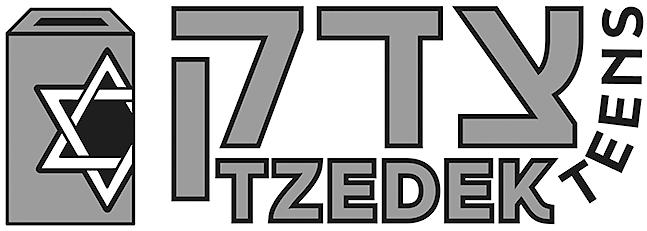
According to the American Cancer Society, volunteer support is critical to providing free lodging to cancer patients and their caregivers. “Providing a meal for our guests helps to ease their financial burden and removes the stress of having to prepare meals while going through treatment.”
While at Hope Lodge, the youth volunteers can choose from a variety of activities. Cooking enthusiasts will prepare ingredients for make-your-own burrito bowls and brownies
Tzedek Teens, a program through The Jewish Federation of Omaha, empowers Jewish youth to give back to the Omaha community by donating time and money to causes important to them. During Tzedek projects, these high school students can earn servicelearning hours.
All Jewish youth are also eligible for a Tzedek Account, a fund through the Jewish Federation of Omaha Foundation. With a minimum initial deposit of $125, the funds are immediately triple-matched to equal a $500 balance. Each spring, Tzedek Teens staff meet with participating teens to help them decide
See Tzedek Teens page 5
Hugo Kahn will chant the haftorah Shmot on Jan. 18 at Shir Chadash New Orleans and Hugo and twin brother Joe will chant zachor together on March 8 also at Shir Chadash on the 80th anniversary of their B’nai Mitzvah! Their B’nai Mitzvah was originally at Beth Israel in Omaha, 18th & Chicago in 1945.
Editor’s note: The following article is about Hugo Kahn’s father celebrating his Bar Mitzvah’s 86th anniversary. It originally ran in the March 7, 1997 Jewish Press
The Nebraska Jewish Historical Society recognizes and records significant milestones in the lives of those in our Jewish community. We encourage all of you to share events with us as in this recently received letter from Hugo Kahn of New Orleans. His 99year-old father recently celebrated the 86th anniversary of his Bar Mitzvah.
On Jan. 4, we gathered in the Blumkin Home Chapel for Shabbat services. The Torah reading was Shemot–Exodus. The reading begins... “and these are the Names of the sons of Israel who came to Egypt with Jacob” and goes on to list names of the 12 sons.
We called to the Bimah for the first honor Yehuda ben Mechayal–on the 86th anniversary of his Bar Mitzvah. Edward Kahn, our father, chanted the blessings and, without hesitation, chanted perfectly, with proper trope, the first verses of Shemot. How truly blessed we are–his children, Joseph, Hugo and Therese, to be present for this occasion. Also in the chapel were Edward’s sister, Sophie Kahn and his wife Elsa, three nephews, Marcel Kahn, Egon Kahn and Joseph Levy, and their spouses, Ilse, Melinda and Bobbie.
A granddaughter, Sara Stiss, and her uncle, Jack Stiss, and cousin, Hilda Gottlieb, and her children, Steven, Ellen and Craig, as well as many friends were there.
How could we relate Shemot to Dad’s life–could we draw a time line from that journey into Egypt to Dad’s exodus from Nazi Germany in 1939? Our grandfather, Michael, Edward’s fa-
ther, was able to exit Germany along with Edward and Johanna, our mother (of Blessed memory), and Joe, Hugo and Therese. In total 18 offspring and spouses of Michael were fortunate to leave for America. Today, 23 great-grandchildren of Michael Kahn and 21 great-great-grandchildren reside in the US. Yes, we could dwell on the large numbers of relatives who were not as fortunate as we, and for sure our thoughts on the Shabbat were also of them. But this was a day God had made; we were happy and our hearts were filled with joy and gratitude.
The book of Shemot ends with a description of God’s presence in the Tent of Meeting– “For over the tabernacle, a cloud of the Lord rested by day.” Surely on that Shabbat Jan. 4, 1997–the 25th of 5757–we felt God’s presence.
We also acknowledge that God’s work is accomplished by human beings; to Lois Wine for arranging the services; to our New Orleans friend, Scott Bresler, for reading the Torah; to Rabbi Kripke for reminding us that our people have meaning only to the extent that families are integral to peoplehood–we offer a profound Todah Rabah.
To our friends and family in Omaha and the caring staff of the Blumkin Home, how can we Thank You enough. We know when we return to Philadelphia, Boca Raton and New Orleans, you all will be watching over Yehuda ben Mechayal and Elsa. You are family–We Love You–you make our hearts full.
These are our thoughts as we take our leave, bend our heads, have Dad lay his hands and bless us as “God blessed Leah, Rebecca, Rachel and Ephraim and Manassa.”







MORGAN GRONINGER
JCRC Program Manager
With the 109th session of the Nebraska Legislature underway, the Omaha Jewish Community Relations Council invites members of the Jewish community to join the JCRC for Advocacy Bootcamp on Tuesday, Jan. 21 at 6:30 p.m. at the Staenberg Jewish Community Center and the Jewish Day of Action on Feb. 4, 2025, in Lincoln. To sign up for these events, please contact Pam Monsky, JCRC Assistant Director, pmonsky@jewishomaha .org or 402.334.6572.
Generously funded by The Shirley & Leonard Goldstein Supporting Foundation, Advocacy Bootcamp helps participants build advocacy skills, and become more confident and effective when engaging in the democratic process. Expert panelists will provide insights into the bills that impact religious freedom, security, and Jewish life, and issues of concern that emerged in our 2025 Community Survey.
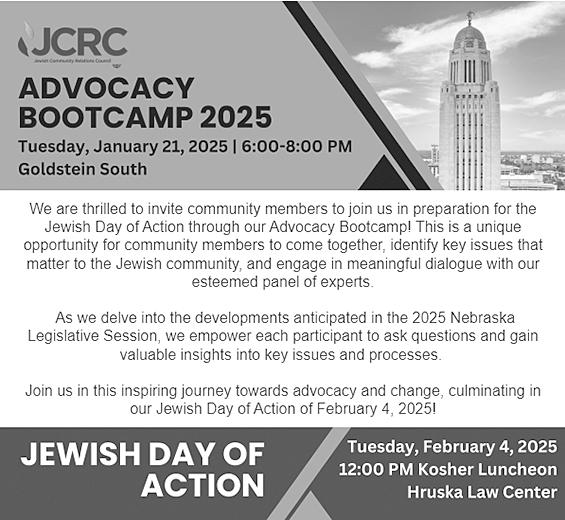

Attendees will be well prepared to join the JCRC on Feb. 4, 2025, for the third-annual Jewish Day of Action when we meet with senators and their staff to strenghten our relationships, share concerns about upcoming legislation, and advo-
cate on behalf of the Jewish community in Omaha. For the first time, 8th graders from Friedel Jewish Academy will also be participating in Jewish Day of Actiom. “Last year, these students traveled to our nation’s Capitol and met with law makers. This year, they will spend time learning about how bills become laws in our state.” said Beth Cohen, Head of School.



The 109th session of the Nebraska State Legislature is expected to bring important changes that could have longterm impact on our religious freedom, security, and ability to continue the delivery of services and programs to our Jewish community and the marginalized people in Omaha and the state. The JCRC is closely monitoring bills that have been introduced over the last week and will continue to review legislation throughout the session.
There are multiple online tools available to help community members stay on top of what’s happening in the legislature. You can find a legislative calendar, contact information, and bill search tool by scanning the QR codes with your phone. It is essential that we are ready to advocate for policies that align with our values and priorities.
Campaigning in South Omaha in 1961 required time spent on 24th Street. And 24th Street, between Q and L, was the heart of South Omaha. James Green’s individual campaigning, as explained to me by the campaign manager, John Y, would start with the old packing houses on Q Street. It would then expand to the business district on 24th Street, the heart of South Omaha’s commercial center.

One of South Omaha’s perpetual meeting places, was Eddies Café.
Eddies was what experts would call a classic “everyman’s café.” It was filled in the morning, serving breakfast starting about six, packed again over the noon hour, filled during the dinner hour, and busy with men and women “just having coffee” in both the middle of the morning and again in the middle of the afternoon. It was not a diner, though it had a menu which would have made a diner proud, and it was not a “place to go in the evening.” It was thoroughly “middle class,” although nobody would have used that term. It didn’t matter what a person was wearing, everyone was welcome. Nobody dressed up to eat at Eddies. No one was made to feel unwelcome; everyone felt at home. And it didn’t close until after 9 p.m.
Eddies was “South Omaha,” and we were to start our day there about 7:30 a.m. Jim Green, as always. began by “working the room,” and I followed right behind him. I’d never done “retail politics” in a restaurant where the politician approached total strangers. At each table the politician was interrupting somebody. It was totally new to me, and at first it was a bit frightening.
“Hello, I’m Jim Green,” he would say, “and I’m running for Mayor. I don’t want to interrupt you or bother you, but I want
Continued from page 4 where to give funds. The tzedakah is then donated to any non-profit organization they choose to support.
to introduce myself and tell you why I’d like you to vote for me.”
He would usually hand them a small campaign card with his photo and a political message. This card established a bit of honesty about who he was and what he was doing. Almost without exception, the stranger looked up at Green, smiled back at him because he was always smiling at them, and clearly acted as if it was fine for Green to go ahead and tell his story. Relatively few people would say something to the effect of “can’t you see I’m eating, and I’m not interested in you or whatever you want.” But those were the exception. To them, Green would smile, in a soft voice say thank you, and move on.
I stood behind him and listened. And though at first I was both nervous and somewhat afraid, I soon understood what Green was doing, how he did it, and how it worked. It took nerve, it took losing all fear of speaking with a stranger, and it took a good deal of pride. It clearly was a task which a natural extrovert would find both easy and pleasant. Green was that type. At that time I had no idea what type I was. But I watched and listened.
We didn’t sit down at a table and order until Green had spoken with everyone in the room. After we finished our own meal, Green got up and went through the room again, for nearly all the customers were different than those he first met. That entire process took about an hour and a half, including our own meal, and the owner and manager of Eddies came over, greeted Green, and told Green that it was fine for him to campaign in Eddies. “We’re for you, 100 per cent of the way,” the manager said.
We left Eddies, walked a few doors south and spoke with Dave Krantz at Allen’s Furniture who smiled and said he was voting for Green, and turned to start walking north on 24th Street. Things were looking good.
Editor’s note: This is the second of three parts. The first part was printed in the Jan. 10, 2025 issue of the Jewish Press





Teens can register for “Cooking Up Hope” by following the QR code to the registration page by going to: https://fundraise.givesmart.com/form/ AFw5AQ?vid=1gvc8a. Families and teens can enroll in Tzedek Teens and start an account by visiting www.jewishomaha.org and navigating to Jewish Youth and Families. With any and all questions please contact Naomi Fox at nfox@ jewishomaha.org or Heidi Heilbrunn Needleman at hheilbrunn@jewishomaha.org
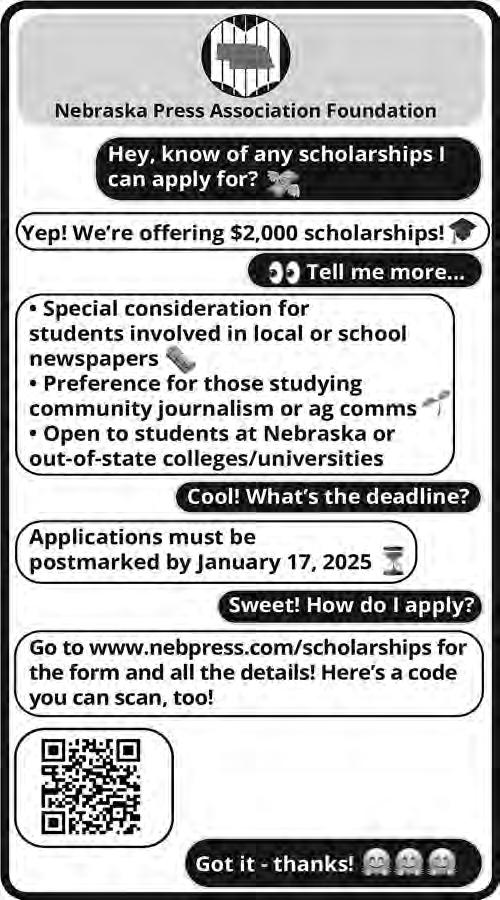


Ingredients:
2 packages mixed dry fruit
1 medium package pitted prunes
1 medium can pineapple chunks
1 medium can cherry pie filling 1/3 cup sherry
Directions:
Preheat the oven to 350 degrees. Butter a 2 qt. casserole. Substitute prunes from package of mixed dry fruit with pitted prunes. Drain pineapple juice. Save 1/3 cup. Toss fruit, add juice and sherry. Top with cherry pie filling. Cover and bake for 1 hour. Serves approximately 14.

THIS IS AN EMERGENCY, MOVE
A
HOT
Connie Kully
Ingredients:
4 cup chicken, cubed and cooked
4 cup celery, diced
1 cup almonds, toasted slivers
2 cup mayonnaise
1 tsp. salt
4 tsp. grated onion
4 Tbsp. lemon juice
1 cup cheddar cheese
1 cup potato chips, crushed
Directions:
Preheat the oven to 350 degrees. Combine mixture and top with cheddar cheese and crushed potato chips. Bake for 30 minutes in a greased casserole.
Heidi Schneiderman
Ingredients:
3/4 cup chopped onion
4 Tbsp. butter
2 cans “Veg All”, drained
28 oz. vegetable broth
1 can red kidney beans
1/2 package frozen chopped spinach
1 14-oz. can whole tomatoes
2 Tbsp. tomato paste
1 8-oz. can stewed tomatoes garlic, salt and pepper to taste
1/2 tsp. basil
1/2 cup macaroni
1/4 cup parmesan cheese
Directions:
CALL the JFO’s Safety and Security Team 402-334-6446
EMAIL JCRCreporting@jewishomaha.org
SCAN the QR code below to fill out the Incident Reporting Form
AREA AND DIAL 9-1-1 We work directly with law enforcement, Secure Communities Network, and the Anti-Defamation League.
If you experience antisemitism, there are ways to report an incident or hate crime: If you see something, say something.

Ingredients:
6-8 oz. red lentils, washed
2 Tbsp. olive oil
1/2 tsp. cumin seeds
1 medium onion, chopped
1 garlic clove, crushed
2 carrots, chopped
2 celery stalks, chopped
1/2 tsp. chili powder
1/2 tsp. turmeric
1 tsp. ground coriander
5 cups chicken or vegetable stock
1 bay leaf salt and pepper, to taste
Directions:
Heat oil in large saucepan over medium heat. Add cumin seeds. When seeds pop, add onion and cook until golden. Add garlic, carrots and celery. Cook gently for 10 min. Stir all spices in and cook for 2 min. Add lentils. Pour in stock. Add bay leaf and bring to a boil. Reduce heat and simmer 1 hr. Remove bay leaf. In a food processor with a metal blade, puree soup. Return puree to the clean pan. Season with salt and pepper. Gently reheat. Garnish, if desired, with fresh tarragon sprigs. Makes 4-8 servings. Delicious!
Sauté onions and butter. Add “Veg All” cans. Blend broth, beans with liquid, spinach and mashed whole tomatoes.
Add to soup. Add tomato paste, stewed tomatoes, garlic, and basil. Cook for 1 hour on low heat. Puree 1/2 of this mixture. Return to soup and mix well. Add macaroni and parmesan cheese. Cook for 30 minutes. Serves 8..
Julie Martin
Ingredients:
2 small package lemon Jell-O 1-6 oz. Frozen Lemonade
2 cups water, 1 hot and 1 cold
2 cups cool whip
Directions:
Mix Jell-O and hot water until dissolved. Add lemonade and cold water. Cool in the refrigerator until thick. Whip in Cool Whip with a hand beater. Fits in 4 cup ring mold. Very tart and refreshing!


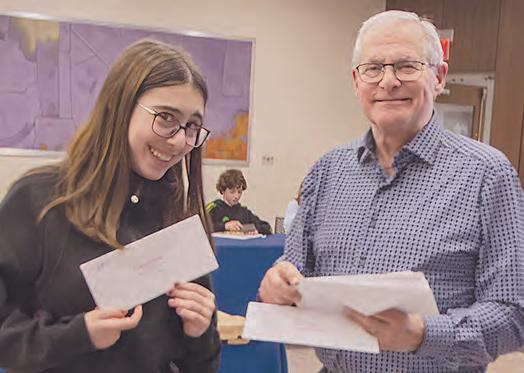
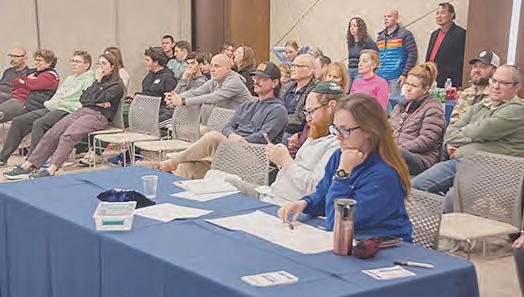
SUBMIT A PHOTO: Have a photo of a recent Jewish Community event you would like to submit? Email the image and a suggested caption to: avandekamp@jewishomaha.org

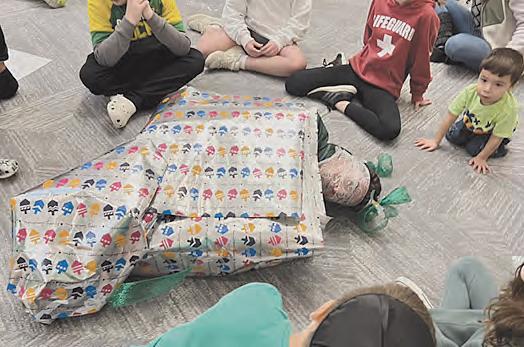
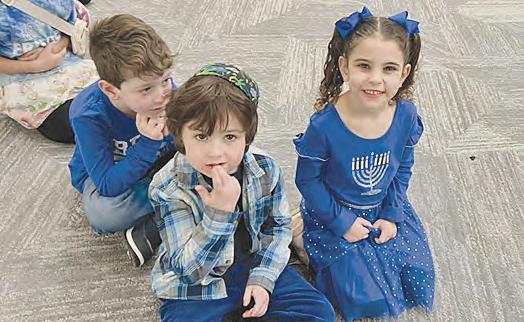
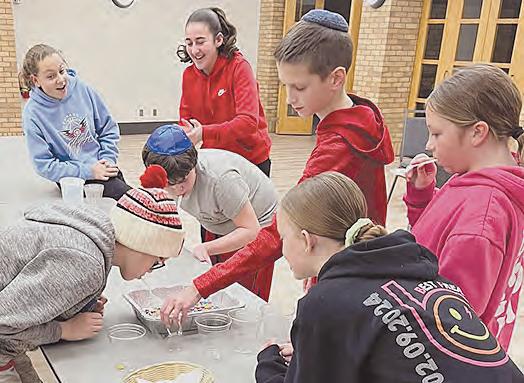
GENEROUSLY SUPPORTED BY
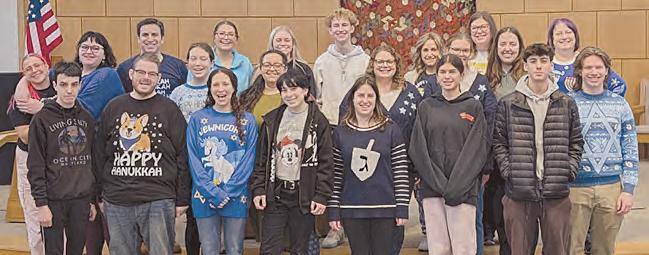


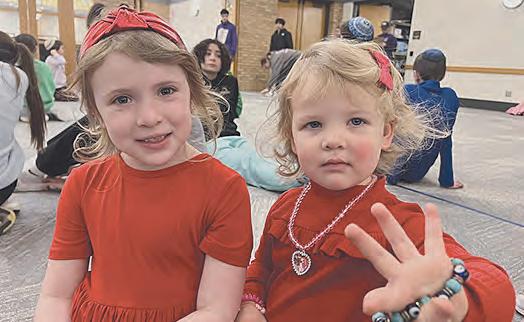




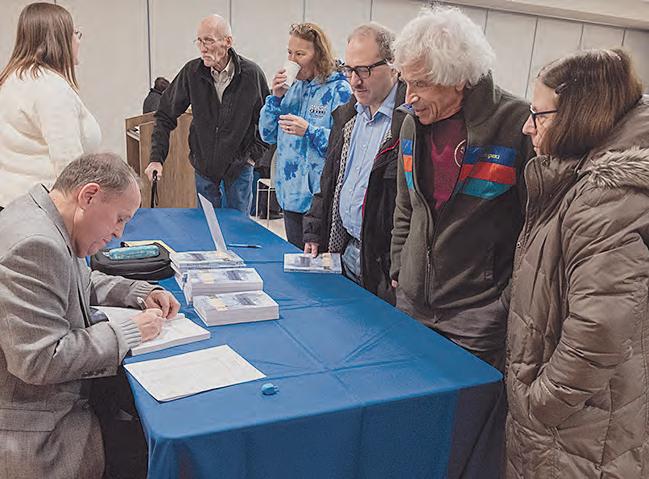
(Founded in 1920)
David Finkelstein
President
Annette van de Kamp-Wright
Editor
Richard Busse
Creative Director
Claire Endelman
Sales Director
Lori Kooper-Schwarz
Assistant Editor
Melanie Schwarz
Intern
Sam Kricsfeld
Digital support
Mary Bachteler
Accounting
Jewish Press Board
David Finkelstein, President; Margie Gutnik, Ex-Officio; Helen Epstein, Andrea Erlich, Ally Freeman, Dana Gonzales, Mary Sue Grossman, Hailey Krueger, Chuck Lucoff, Larry Ring, Melissa Schrago, Suzy Sheldon and Stewart Winograd.
The mission of the Jewish Federation of Omaha is to build and sustain a strong and vibrant Omaha Jewish Community and to support Jews in Israel and around the world. Agencies of the JFO are: Institute for Holocaust Education, Jewish Community Relations Council, Jewish Community Center, Jewish Social Services, Nebraska Jewish Historical Society and the Jewish Press Guidelines and highlights of the Jewish Press, including front page stories and announcements, can be found online at: www.jewishomaha.org; click on ‘Jewish Press.’ Editorials express the view of the writer and are not necessarily representative of the views of the Jewish Press Board of Directors, the Jewish Federation of Omaha Board of Directors, or the Omaha Jewish community as a whole. The Jewish Press reserves the right to edit signed letters and articles for space and content. The Jewish Press is not responsible for the Kashrut of any product or establishment.
Editorial
The Jewish Press is an agency of the Jewish Federation of Omaha. Deadline for copy, ads and photos is: Thursday, 9 a.m., eight days prior to publication. E-mail editorial material and photos to: avandekamp@jewishomaha.org ; send ads (in TIF or PDF format) to: rbusse@jewishomaha.org
Letters to the Editor Guidelines
The Jewish Press welcomes Letters to the Editor. They may be sent via regular mail to: The Jewish Press, 333 So. 132 St., Omaha, NE 68154; via fax: 1.402.334.5422 or via e-mail to the Editor at: avandekamp@jewishomaha.org.
Letters should be no longer than 250 words and must be single-spaced typed, not hand-written. Published letters should be confined to opinions and comments on articles or events. News items should not be submitted and printed as a “Letter to the Editor.”
The Editor may edit letters for content and space restrictions. Letters may be published without giving an opposing view. Information shall be verified before printing. All letters must be signed by the writer. The Jewish Press will not publish letters that appear to be part of an organized campaign, nor letters copied from the Internet. No letters should be published from candidates running for office, but others may write on their behalf.
Letters of thanks should be confined to commending an institution for a program, project or event, rather than personally thanking paid staff, unless the writer chooses to turn the “Letter to the Editor” into a paid personal ad or a news article about the event, project or program which the professional staff supervised. For information, contact Annette van de Kamp-Wright, Jewish Press Editor, 402.334.6450.
Postal
The Jewish Press (USPS 275620) is published weekly (except for the first week of January and July) on Friday for $40 per calendar year U.S.; $80 foreign, by the Jewish Federation of Omaha. Phone: 402.334.6448; FAX: 402.334.5422.
Periodical postage paid at Omaha, NE. POSTMASTER: Send address changes to: The Jewish Press, 333 So. 132 St., Omaha, NE 68154-2198 or email to: jpress@jewishomaha.org
ANNETTE VAN DE KAMP-WRIGHT
Jewish Press Editor
“Since Hamas launched the war with its attack on Oct. 7, 2023,” Ben Sales recently wrote for the Jewish Telegraphic Agency, “Holocaust memorials or museums in Germany, the Netherlands, the United Kingdom, the United States and elsewhere have been defaced with graffiti protesting Israel’s conduct in Gaza.”
The latest monument to be vandalized with antiIsrael messaging: Warsaw’s Umschlagplatz memorial. “Warsaw 1943 = Gaza 2025” was sprayed in red paint. All it takes to feel involved and politically engaged in 2025 is a bottle of red paint.
There is a deeper meaning behind these activists’ reasoning: if Israel, and by association all Jews everywhere, are guilty of genocide, nobody will ever again have to feel guilty about the Holocaust. Or sad, or empathetic. And wouldn’t that be a relief for the rest of the world?
There was a time when we worried about the younger generations not learning the lessons of the Holocaust. Now we know that fear was justified, and I wish it wasn’t so. What I didn’t count on was this eagerness to make the Shoah irrelevant. Because that’s what’s happening: it’s not only the vicious murders, rapes and kidnappings on October 7 and the atrocities since; it’s all violence against Jews that they are trying to wash away. Jews are bad, so antisemitism isn’t really a problem. And you know: they have convinced themselves that antiZionism is not antisemitism.
Sure it isn’t.
Editorials express the view of the writer and are not necessarily representative of the views of the Jewish Press Board of Directors, the Jewish Federation of Omaha Board of Directors, or the Omaha Jewish community as a whole.
I know I’m not saying anything new or earthshattering here, because this is our reality. But I’m worried: are we getting too used to it? How do we keep the energy, the fight; where do we get the sheer chutzpah to never, ever give up?

There is a place near where my mother lives where they import products from Israel. The venue also holds a museum with rotating exhibits about Judaism in the Netherlands and Israeli artists, current events, etc. They hold lectures, they aim to educate, although my mother mostly goes there for the shopping. The building has been vandalized multiple times in recent months, so I worry about her going there. My mother, however, is more worried about the wolves that roam the countryside. You read that right. Wild wolves have been mak-
ing their way from east to west in Europe and are so mismatched to the ecosystem that their population has rapidly grown out of control. They come onto farms, into chicken coops, and roam inside towns. My cousin saw one on her property, and they are pack animals, so you know there were more. On a weekly basis, some farmer finds his sheep massacred in the field. One little boy was dragged from his bicycle and narrowly survived a nasty wolf bite. I know; it sounds like a fairytale gone wrong. Officially, the wolves are protected (we didn’t have them when I was a kid) and so those farmers aren’t allowed to shoot or trap them, no matter how many sheep they lose. It’s a whole thing.
While those who live outside the cities are trying to convince the government to do something about this, the activists are defending the wolves. To hear some of my family members tell it, those pro-wolf activists are the same ones as those waving a Palestinian flag and calling for global intifada. I don’t know if that’s true, but it feels true. Can’t you see it? Something about how the world is black and white. You can care about the wolves, but that means you have to ignore the famers’ safety. You can care about the people in Gaza, but that means you must hate Israel and the Jews.
And before you know it, you no longer see the difference between sheep blood and red spray paint. It’s all a haze.
SARA FREDMAN AEDER JTA
Last year, as I stood in the ruins of the Nevele Hotel, memories flooded back despite the devastation around me.
Every surface is covered in graffiti, roofs have caved in throughout the property, and not a single piece of carpet or wood paneling remains — all stripped away by years of looting. The grand ballroom where my grandmother once insisted on the best table in the house is now a dangerous shell. The room where my extended family held our seder is exposed to the elements, every piece of the glass window in shards on the ground. The building clearly isn’t safe to enter, though that didn’t stop me from making this pilgrimage.
Yet even in its decrepit state, the hotel sparked profound emotion, particularly as I visited in the week after my grandfather’s death. The image of my grandparents greeting their nine grandchildren at the Nevele’s doors each year remains etched in my mind as the highlight of our family calendar. This wasn’t high-end luxury — it was something far more valuable: authentic Jewish family experience.
For generations of Jewish families, the “Borscht Belt” hotels in New York’s Catskill Mountains weren’t just vacation spots — they were the cornerstone of family life. My childhood Passovers at the Nevele, one of the last to close in 2009, created the kind of memories money can’t buy: cousins running wild through hidden tunnels and unexplored rooms, extended family gathered for meals, and entertainment that launched careers of scores of Jewish comedians.
Today’s family vacations often involve expensive resorts or carefully curated experiences. The closing scenes of Dirty Dancing captured this shift perfectly — as the characters lament that kids don’t want to come to the Catskills anymore, preferring fancy European vacations instead. That 1987 cinematic eulogy to the Borscht Belt proved prescient.
But what we’ve lost in the decline of the Catskill hotels is something uniquely valuable: spaces designed for Jewish families to simply be together, where Jewish culture wasn’t an add-on but the very foundation of the experience. In an era of increasing isolation and digital distraction, we need these
spaces more than ever.
The ruins of these once-vibrant hotels remind us of what we’ve lost. But they also point the way forward — showing us how to create spaces that prioritize family connection, Jewish community and the kind of unstructured time that builds lasting bonds. It’s time to reinvent this model for a new generation.
Significant obstacles confront any attempt to revive the Catskills model. Real-estate costs in today’s market dwarf those of the Borscht Belt era, while insurance and liability concerns make family-friendly facilities increasingly expensive to maintain. Modern work culture, with its expectations of constant connectivity, makes extended family stays challenging to coordinate. Any new venture would need to navigate these financial and logistical hurdles through innovative funding and operational models.
These new spaces could blend traditional elements — communal dining rooms, entertainment venues and plenty of unstructured spaces for kids to explore — with modern amenities like co-working spaces for parents who can’t fully disconnect and teen lounges that thoughtfully integrate tech-

We’re not starting from scratch. Some initiatives are already exploring this territory: Ramah Berkshires’ family camp offers traditional camp activities alongside Jewish programming; Camp Havaya welcomes diverse Jewish families for immersive experiences in the Poconos; and Pearlstone’s Family Farm Camp weaves earth-based Jewish wisdom into outdoor adventures. But these remain limited in scope and scale compared to the year-round, accessible model of the Catskills era. Most operate only during peak seasons and can accommodate relatively few families at a time.
What might a modern interpretation look like? Imagine season-long communal residences where families could book recurring weeks or weekends throughout the year, creating consistent community rather than one-off vacations. Consider converted summer camps that transform into multi-generational spaces during school breaks, complete with kosher dining halls and shared Shabbat experiences. Picture affordable time-share arrangements specifically designed for extended Jewish families, with flexible spaces that accommodate both private family time and community gathering.
nology. They could offer programming that spans generations: storytelling workshops where grandparents share family histories, cooking classes that pass down traditional recipes, and spaces for both organized and impromptu music and performance.
The key is maintaining what made the Catskills special: affordability, extended family accessibility and an environment where Jewish life flows naturally rather than feeling forced. In my grandparents’ memory, and for all the grandparents who once stood proudly at hotel entrances welcoming their growing families, we should work to recreate these spaces of Jewish family life — not as museums to the past, but as vital centers for building the Jewish family memories of tomorrow.
Sara Fredman Aeder is vice president of Israel and Jewish affairs at JCRC-NY. She earned a doctorate in higher education administration and previously worked as the chief of staff at the Bronfman Center for Jewish Student Life at NYU. The views and opinions expressed in this article
those of the author and do not necessarily reflect the views of JTA or its parent company, 70 Faces Media.
New York Jewish Week via JTA
You might be forgiven for never having heard of the worst anti-Jewish riot in American history. It happened on the Lower East Side over a century ago, and largely slipped from history. Jewish memory was overloaded with subsequent calamities, from Kishinev and Auschwitz to Pittsburgh and Oct. 7.
But as Scott Seligman argues in his new book, “The Chief Rabbi’s Funeral,” the mob attack on July 30, 1902, that left 196 Jewish mourners beaten and bloodied also left a legacy of Jewish political activism that remains a model for today. The attack on the funeral procession of Rabbi Jacob Joseph led a fractious Jewish community to organize, seeking justice for the victims and punishment for the perpetrators.
“The lesson of the 1902 riot is that when antisemitism crosses the line and it morphs into violence and intimidation against Jews, then it needs to be punished, and our best response is to unify and to organize,” Seligman, a historian based in Washington, D.C., told me this week. “Which is what they did, using whatever political power and influence they had.” Seligman and I last spoke in 2020, after the publication of his book “The Great Kosher Meat War of 1902,” which formed the germ of his latest book. Actually, he told me, an article I wrote about the earlier book, focusing on the rabbi whose funeral inspired the riot the same year, inspired Seligman to dig deeper into that part of the story.
Joseph was a Vilna Talmud scholar who was brought to New York in 1888 to serve as a sort of chief rabbi to the city’s teeming Jewish community (and rationalize its corrupt and unreliable kosher meat business). It turned out to be easier to merge all of New York’s boroughs into a single municipality than get the Jews to agree on a chief rabbi. By 1895 Joseph was no longer being paid by the groups who brought him over, and his authority was recognized only by a handful of downtown Orthodox congregations. Before suffering a stroke in 1898, he worked as a hired kosher supervisor for some wholesale butchers.
When he died in 1902 at the age of 62, a penitent Lower East Side decided to give him in death the respect that had eluded him in life. Hundreds of thousands of mourners joined his funeral procession, which wound past neighborhoods in lower Manhattan before his body was put on a ferry for burial in Brooklyn.
The trouble began when the procession passed by the R. Hoe printing press factory at Grand and Sheriff Streets. Workers there hurled debris on the mourners and sprayed them with water hoses. The crowd fought back as best it could, throwing projectiles back at the factory and breaking windows.
By the time police arrived, the clashes had largely ended, but, taking their cue from the factory owner and a commander who instructed police — according to a newspaper
account — to “club the life out of them,” the cops began beating Jewish mourners. No Jews died in the assault, but many were arrested and hauled before the Essex Market Police court.
What happened next would be a watershed in Jewish political and communal activism for a community riven by internal divisions: A day after the violence, various leaders formed the East Side Vigilance League to demand a fair investigation and punishment for the offending officers.
At the same time, Jewish lawyers rushed to the courts to defend Jews unfairly singled out in the violence. “They were uptown and downtown,” Selgiman said of the lawyers. “They were Democrat and Republican. They were Reform and they were Orthodox.”
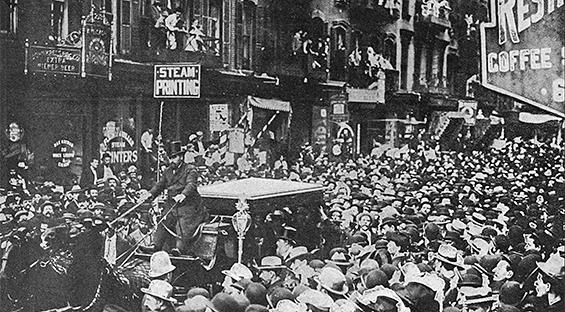
Over the next few months, the calls for justice would be surprisingly, and unprecedentedly, effective. Until then Jews had little recourse against the largely Irish police who disdained them. But NYC Mayor Seth Low, narrowly elected on a reform platform aimed at the corrupt Democratic machine known as Tammany Hall, was sympathetic to the Jews who helped turn out the vote. Low named a blue-ribbon committee to conduct an independent review, which ultimately exonerated the Jews and found the police negligent in the violence.
“This was the first, as far as I can tell, semi-successful attempt [by New York’s Jews] to get justice,” said Seligman. “A lot of people didn’t get seriously punished for this, but there were transfers out of the department. There were resignations in the department. They did get something for their efforts.”
The East Side Vigilance League didn’t last long (such committees “never lasted beyond the problem,” said Seligman) but it set a precedent. In 1908, after a police commissioner named Theodore Bingham used bogus statistics to claim Jews were responsible for half of the city’s crime, Reform Rabbi Judah Magnes helped establish the New York Kehillah, a federation of Jewish self-defense organizations (Bingham withdrew his statement). The Kehillah lasted until 1922, but other national organizations, including the American Jewish Committee and
the American Jewish Congress, proved more durable. Jews learned the art of making their concerns known to ambitious politicians. The 1913 lynching in Georgia of Jewish factory manager Leo Frank that led to the establishment of the AntiDefamation League, still the most important of the groups helping to create a strategy for fighting antisemitism.
A century and more after the funeral riot, unity remains illusory. For decades, Israel proved a reliable cause around which to rally Jews, while antisemitism receded into the background. That formula has flipped, with antisemitism once again the one communal concern on which Jews can approach something looking like consensus. But even there, huge cracks are apparent: A year of campus activism has divided as well as united Jews, and the ADL faces competitors who think its approach to antisemitism is variously too soft on the left or too beholden to the right.

Ironically, one of the most polarizing debates in Jewish life in recent years involved the Black Lives Matter movement, which aimed to address the kind of police misconduct to which Jews were subject in the early 20th century. When one of the main BLM groups took up the Palestinian cause, it further divided Jewish groups and power brokers.
And yet for all the divisions and infighting, there remains widespread consensus among Jews on the need for the kind of advocacy that was born in New York City after Rabbi Jacob Joseph’s funeral.
“If there is a lesson to be drawn from the Grand Street riot, it is that resistance to these outrages is both necessary and possible,” writes Seligman. “The key lies in unifying, in organizing, in building alliances, and in amassing political power and influence.”
Andrew Silow-Carroll is editor at large of the New York Jewish Week and managing editor for Ideas for the Jewish Telegraphic Agency.
The views and opinions expressed in this article are those of the author and do not necessarily reflect the views of NYJW or its parent company, 70 Faces Media.
JTA
The question of whether American Jews should criticize Israel has nothing to do with free speech, or democracy, or peace in the Middle East. It has everything to do with the reallife consequences that Israelis suffer when they bow to criticism from abroad.
In a recent JTA op-ed, Rabbi Jill Jacobs called on American Jews to pressure Israel to “end the war in Gaza.” That might sound appealing at first glance. After all, war is bad. Everyone wants wars to end. But what would be the real-life consequences for Israelis if Israel ceased firing at Hamas now, before victory has been achieved?
Today, the war in Gaza is in large part a police operation. Israeli forces are mopping up the last several thousand of the terrorists who raged through southern Israel 14 months ago. The Israeli army is no longer engaged in large-scale battles or continual air strikes. Israeli security forces are simply going house to house in search of Hamas killers.
If killers were on the loose in any American neighborhood — surely the residents would want the police to hunt them down. I doubt anybody would be urging the police to “end the war.” Yet if the critics of Israel somehow succeeded in pressuring Israel’s leaders to “end the war,” several thousand killers would escape justice.
Let’s consider another real-life consequence of “ending the war” prior to victory. If Israel enters into a one-sided ceasefire against Hamas before Hamas is completely destroyed, then Hamas will remain in power in Gaza.
Yes, the same Hamas that treats Arab women like thirdclass citizens, prevents them from entering many professions, and campaigns for them to wear a hijab to obscure most of their faces. Hamas courts have ruled that Gazan women need

the permission of a male guardian just to travel.
For many left-of-center critics of Israel who support women’s equality, surely that is a nightmare scenario. Yet that would be the real-life consequence of what they are demanding from Israel today.
Let’s consider another real-life consequence: Israelis cite the foreign pressure and criticism that helped bring about Israel’s withdrawal from Gaza in 2005. The real-life consequence was years of Hamas rockets being fired at kindergartens in southern Israel, culminating in the vicious atrocities of Oct. 7. Once
again, demands for withdrawal in the name of “peace” only brought more war.
Israelis also point to the tremendous pressure and criticism from abroad that helped bring about Israel’s withdrawal from southern Lebanon in 2000. The real-life consequence was that Hezbollah was able to build up an arsenal of 150,000 rockets, with which it has tormented Israel, provoked multiple wars, and driven tens of thousands of Israeli families from their homes. Demands for withdrawal in the name of “peace” only brought more war.
In my many conversations with Israelis — as a pro-Israel activist for decades, as a delegate to the World Zionist Congress, and today as national chairman of a pro-Israel organization — the sentiment I have heard expressed the most often is profound frustration at this gap between what left-wing Diaspora critics advocate, and what ordinary Israelis experience. So here is my plea to left-of-center American Jews who are considering whether or not to publicly criticize Israel: Think carefully about the potential real-life consequences that others may suffer because of your actions. No matter how lofty your rhetoric or intentions, there is a real world out there, one where Hamas kidnappers and Hezbollah rockets have exacted a steep price.
Moshe Phillips is national chairman of Americans For A Safe Israel, a pro-Israel advocacy and education organization.
The views and opinions expressed in this article are those of the author and do not necessarily reflect the views of JTA or its parent company, 70 Faces Media.
B’NAI ISRAEL SYNAGOGUE
618 Mynster Street Council Bluffs, IA 51503-0766
712.322.4705 www.cblhs.org
BETH EL SYNAGOGUE
Member of United Synagogues of Conservative Judaism 14506 California Street Omaha, NE 68154-1980
402.492.8550 bethel-omaha.org
BETH ISRAEL
SYNAGOGUE
Member of Union of Orthodox Jewish Congregations of America 12604 Pacific Street Omaha, NE. 68154
402.556.6288 BethIsrael@OrthodoxOmaha.org
CHABAD HOUSE
An Affiliate of Chabad-Lubavitch 1866 South 120 Street Omaha, NE 68144-1646
402.330.1800 OChabad.com email: chabad@aol.com
LINCOLN JEWISH COMMUNITY:
B’NAI JESHURUN
South Street Temple
Union for Reform Judaism 2061 South 20th Street Lincoln, NE 68502-2797
402.435.8004 www.southstreettemple.org
OFFUTT AIR
FORCE BASE
Capehart Chapel 2500 Capehart Road Offutt AFB, NE 68123
402.294.6244 email: oafbjsll@icloud.com
TEMPLE ISRAEL
Union for Reform Judaism (URJ) 13111 Sterling Ridge Drive Omaha, NE 68144-1206
402.556.6536 templeisraelomaha.com
LINCOLN JEWISH COMMUNITY:
TIFERETH ISRAEL
Member of United Synagogue of Conservative Judaism 3219 Sheridan Boulevard Lincoln, NE 68502-5236 402.423.8569 tiferethisraellincoln.org
Monthly Speaker Series Service, Friday, Feb. 14, 7:30 p.m. with our guest speaker. Our service leader is Larry Blass. Everyone is always welcome at B’nai Israel!
For information about our historic synagogue, please visit our website at www.cblhs.org or contact any of our other board members: Renee Corcoran, Scott Friedman, Rick Katelman, Janie Kulakofsky, Howard Kutler, Carole and Wayne Lainof, Ann Moshman, MaryBeth Muskin, Debbie Salomon and Sissy Silber. Handicap Accessible.
Services conducted by Rabbi Steven Abraham and Hazzan Michael Krausman.
IN-PERSON AND ZOOM MINYAN SCHEDULE:
Mornings on Sundays, 9:30 a.m.; Mondays and Thursdays, 7 a.m.; Evenings on Sunday-Thursday, 5:30 p.m.
FRIDAY: Kabbalat Shabbat, 6 p.m. at Beth El & Live Stream.
SATURDAY: Shabbat Morning Services and Bat Mitzvah of Leah Dubrow 10 a.m. at Beth El and Live Stream; Jr. Congregation (Grades K-12), 10 a.m.; Havdalah, 6 p.m. Beth El and Zoom.
SUNDAY: BESTT (Grades K-7), 9:30 a.m.; A Journey Through The Shabbat Siddur, 10:30 a.m. with Hazzan Krausman; Hands-On Judaism, 11:15 a.m. with Hazzan Krausman.
MONDAY: Women’s Book Group, 2 p.m.
TUESDAY: Mishneh Torah, 6 p.m. with Rabbi Abraham; Gates of Gaza Preview, 7:30 p.m. with Rabbi Abraham; Board of Trustess Meeting, 7 p.m.
WEDNESDAY: BESTT (Grades 3-7), 4 p.m.; Hebrew High (Grades 8-12), 6 p.m.; USY Lounge Night, 7:30 p.m.
FRIDAY-Jan. 24: Nebraska AIDS Project Lunch, 11:30 a.m.; Kabbalat Shabbat, 6 p.m. at Beth El & Live Stream.
SATURDAY-Jan. 25: Shabbat Morning Services, 10 a.m. at Beth El and Live Stream; Jr. Congregation (Grades K-12) 10 a.m.; Havdalah, 6:10 p.m. Beth El and Zoom.
Please visit bethel-omaha.org for additional information and service links.
FRIDAY: Nach Yomi, 6:45 a.m.; Shacharit, 7 a.m.; Mincha/Kabbalat Shabbat/Candlelighting, 5:05 p.m.
SATURDAY: Shabbat Kollel, 8:30 a.m.; Shacharit, 9 a.m.; Tot Shabbat 10:30 a.m.; Youth Class 10:45 a.m.; Soulful Torah, 4:05 p.m. with Rabbi Geiger; Mincha, 4:50 p.m.; Kids Activity/Laws of Shabbos, 5:20 p.m.; Havdalah, 6:09 p.m.; Melave Malka in memory of the yahrzeit of Rabbi Grodzinsky z”l, 6:15 p.m.
SUNDAY: Shacharit, 9 a.m.; Men’s Spin & Torah, 11 a.m. at the JCC; Mincha/Ma’ariv 5:10 p.m.
MONDAY: Nach Yomi, 6:45 a.m.; Shacharit, 7 a.m.; Mincha/Ma’ariv 5:10 p.m.
TUESDAY: Nach Yomi, 6:45 a.m.; Shacharit, 7 a.m.; Mincha/Ma’ariv, 5:10 p.m.
WEDNESDAY: Nach Yomi, 6:45 a.m.; Shacharit, 7 a.m.; Mincha/Ma’ariv, 5:10 p.m.; Board of Directors Meeting, 6:30 p.m.
THURSDAY: Nach Yomi, 6:45 a.m.; Shacharit, 7 a.m.; Character Development, 9:30 a.m.; Mincha/
Ma’ariv, 5:10 p.m.
FRIDAY-Jan. 24: Nach Yomi, 6:45 a.m.; Shacharit, 7 a.m.; Mincha/Kabbalat Shabbat/Candlelighting, 5:13 p.m.; MMB Shabbat Dinner, 6 p.m.
SATURDAY-Jan. 25: Shabbat Kollel, 8:30 a.m.; Shacharit 9 a.m.; Tot Shabbat 10:30 a.m.; Youth Class 10:45 a.m.; Soulful Torah, 4:15 p.m. with Rabbi Geiger; Mincha, 5 p.m.; Kids Activity/Laws of Shabbos 5:30 p.m.; Havdalah, 6:16 p.m.
Please visit orthodoxomaha.org for additional information and Zoom service links.
All services are in-person. All classes are being offered in-person and via Zoom (ochabad.com/academy). For more information or to request help, please visit www.ochabad.com or call the office at 402.330.1800.
FRIDAY: Shacharit 8 a.m.; Lechayim, 4:30 p.m. go to ochabad.com/Lechayim to join; Candlelighting, 5:04 p.m.; Chabad Young Professionals International Shabbaton.
SATURDAY: Shacharit, 10 a.m. followed by Kiddush and Cholent; Chabad Young Professionals International Shabbaton; Shabbat Ends, 6:08 p.m.
SUNDAY: Sunday Morning Wraps, 9 a.m.; Sunday Pod, 9-11 a.m. RSVP by texting ‘Sunday Pod’ to 4022155240; Chabad Young Professionals International Shabbaton.
MONDAY: Shacharit 8 a.m.; Personal Parsha 9:30 a.m.; Intermediate Biblical Hebrew Grammar, 10:30 a.m. with Prof. David Cohen; Parsha Reading, 6 p.m. with Prof. David Cohen; Translating Words of Prayer, 7 p.m. with David Cohen.
TUESDAY: Shacharit 8 a.m.; Translating Words of Prayer, 11 a.m. with David Cohen; Intermediate Biblical Hebrew Grammar, 6 p.m. with Prof. David Cohen; Introductory Biblical Hebrew Grammar, 7 p.m. with Prof. David Cohen.
WEDNESDAY: Shacharit 8 a.m.; Mystical Thinking (Tanya), 9:30 a.m.; Introductory Biblical Hebrew Grammar, 10:30 a.m. with Prof. David Cohen; Parsha Reading, 11:30 a.m. with Prof. David Cohen.
THURSDAY: Shacharit, 8 a.m.; Introduction to Alphabet, Vowels & Reading Hebrew, 10 a.m.; Advanced Biblical Hebrew Grammar, 11 a.m. with Prof. David Cohen; Talmud Study, noon-1 p.m. with Rabbi Katzman; Introduction to Alphabet, Vowels & Reading Hebrew, 6 p.m.; Code of Jewish Law Class, 7 p.m.
FRIDAY-Jan. 24: Shacharit, 8 a.m.; Lechayim, 4:30 p.m. go to ochabad.com/Lechayim to join; Candlelighting, 5:13 p.m.
SATURDAY-Jan. 25: Shacharit 10 a.m. followed by Kiddush and Cholent; Shabbat Ends, 6:16 p.m.; JMoms Night Out, 7:30 p.m., contact Mushka at mushka@ochabd.com for more details
LINCOLN JEWISH COMMUNITY: B’NAI JESHURUN & TIFERETH ISRAEL
Services facilitated by Rabbi Alex Felch. All services offered in-person with live-stream or teleconferencing options.
FRIDAY: Shabbat Candlelighting, 5:08 p.m.; Kabbalat Shabbat Service, 6:30-7:30 p.m. led by Rabbi Alex at SST.
SATURDAY: Shabbat Service, 9:30-11 a.m. led by
Rabbi Alex at TI; Torah Study, noon on Parshat Shemot led by TBD via Zoom; Potluck Dinner and Family Game Night, 6 p.m. at SST. Please bring a dish to share. All ages are welcome; Havdalah, 6:05 p.m.
SUNDAY: LJCS Classes, 9:30-11:30 a.m. at TI; Tzedek and B'tzelem Elohim Family Education, 1011:30 a.m. at SST; Men’s Bike/Coffee Group, 10:30 a.m. at The Mill on the Innovation Campus. For more information or questions please email Al Weiss at albertw801@gmail.com
WEDNESDAY: LJCS Hebrew School, 4:30-6 p.m. at TI; Men’s Lunch Group, 12:15 p.m. at HoriSun, 8055 O St. We meet every other Wednesday. Contact alb ertw801@gmail.com to join and receive updates. Bring your own lunch and beverage; Adult Ed Movie Night: Keeping the Faith, 6:30-8:30 p.m. at SST. FRIDAY-Jan. 24: Shabbat Candlelighting, 5:16 p.m.; Kabbalat Shabbat Service, 6:30-7:30 p.m. led by Rabbi Alex at SST.
SATURDAY-Jan. 25: Shabbat Service, 9:30-11 a.m. led by Rabbi Alex at TI; Torah Study, noon on Parshat Va'era led by TBD via Zoom; Havdalah, 6:?? p.m.
FRIDAYS: Virtual Shabbat Service, 7:30 p.m. every first and third of the month at Capehart Chapel. Contact TSgt Jason Rife at OAFBJSLL@icloud.com for more information.
In-person and virtual services conducted by Rabbi Benjamin Sharff, Rabbi Deana Sussman Berezin, and Cantor Joanna Alexander.
FRIDAY: Drop-In Mah Jongg, 9 a.m. In-Person; Shabbat B’yachad Service, 6 p.m. In-Person & Zoom.
SATURDAY: Torah Study, 9:15 a.m. In-Person; Shabbat Morning Service, 10:30 a.m. In-Person & Zoom.
SUNDAY: No Youth Learning Program.
WEDNESDAY: Yarn It, 9 a.m. In-Person; Grades 36, 4:30 p.m. In-Person; Hebrew High: Grades 8-12, 6 p.m. In-Person; How the Israelites Became The Jews, 6:30 p.m. In-Person.
THURSDAY: The Zohar: Thursday Morning Class 11 a.m. with Rabbi Sharff and Rabbi Azriel — In-Person & Zoom; Israel-Palestine Class Part II, 6:30 p.m. InPerson.
FRIDAY-Jan. 24: Drop-In Mah Jongg, 9 a.m. In-Person; Shabbat Shira Service, 6 p.m. In-Person & Zoom.
SATURDAY-Jan. 25: Torah Study, 9:15 a.m. In-Person; Shabbat Morning Service and Bar Mitzvah of Ezra Feinstein 10:30 a.m. In-Person & Zoom. Please visit templeisraelomaha.com for additional information and Zoom service links.
As of January 1, 2025, the Jewish Press will charge $180 for the inclusion of standard obituaries, up to 400 words. Photos may be included if the family so wishes. For many years, we have held off on making this decision. However, it is no longer financially responsible for us to include obituaries at no charge. For questions, please email avandekamp@ jewishomaha.org. Obituaries in the Jewish Press are included in our print edition as well as our website at www.omahajewishpress.com
party founded by former Nazis is tapped to lead Austria’s government
JTA
Austria’s far-right Freedom Party, which was founded by former Nazis, has been given a mandate to form a governing coalition, positioning it to lead the country for the first time since World War II.
The Freedom Party won the most votes in national elections in September, but a group of more moderate parties engaged in months-long negotiations to form a coalition that would block it from taking power. Those talks faltered over the weekend and the sitting chancellor resigned. On Jan. 6 the Austrian president gave the Freedom Party the go-ahead to assemble a coalition.
If that effort is successful, Austria will be led by a politician, Herbert Kickl, who has aspired to the title “Volkskanzler,” which means “people’s chancellor” and was also used by Adolf Hitler. The Free-
dom Party was founded in the years following World War II by former Nazi SS soldiers, a legacy that has cropped up more recently as well: Last year, attendees at a funeral of a longtime party member sang a song that praises the “holy German Reich” and that was popularized by the Nazis.
More broadly the party, like other far-right movements across Europe, is sympathetic to Russia and opposed to migration. Its election success, which alarmed local Jewish leaders, came at a time of gains for far-right parties across the continent.
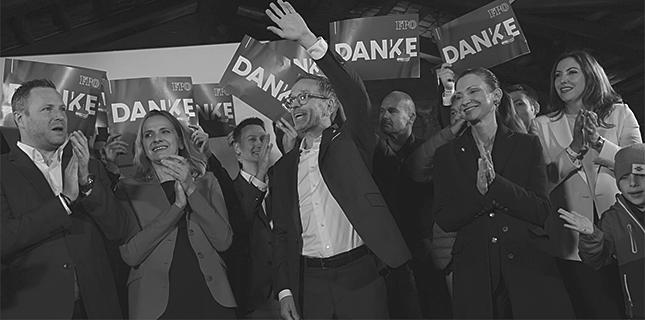
If the Freedom Party cannot form a government, Austria will hold another round of elections.
DR. EVAN PAUL VARKONY
Dr. Evan Paul Varkony passed away on Jan. 4, 2025. He was interred in a private ceremony on Jan. 6, 2025 in Mount Zion Gardens, Dallas, Texas.
Dr. Evan Varkony, beloved son of the late Nicholas and Elizabeth Varkony, a devoted father to Daniel, Tammy (son-in-law Vadim Matveyev) and Oren, grandfather to Talia Esther and Noa Hannah, brother to Steven, uncle to Jonathan, dear friend to Edna Press, lifelong family friend to Lucy Pomeranz, and friend to many others, passed away after a long illness in Austin, Texas on January 4, 2025.
Evan was born on May 9, 1945, in Timisoara, Romania he immigrated to Montreal, Canada as a child with his parents. After attending Outremont High School, Evan completed an Electrical Engineering degree at McGill University and worked for CAE, an
aviation company.
Not feeling fulfilled as an engineer, Evan moved to Los Angeles and went into business with his cousin for a couple of years, before deciding to begin studying medicine in Louvain, Belgium and graduating from the University of Manitoba in Winnipeg, Canada.
After working for several years in Winnipeg, Evan moved to Omaha, Nebraska where he practiced family medicine for the US Air Force for nearly 25 years.
Upon retirement, Evan moved to Austin, Texas to be near his daughter Tammy and grandchildren Talia and Noa. They, along with his two sons Daniel and Oren, meant the world to him.
Evan was humble, generous and a loyal friend. He liked people and was well-respected and liked by his peers and patients alike. He enjoyed reading and was particularly interested in world events.
A synagogue that survived the Palisades fire has become a ‘refuge’
JTA
Two blocks away: a school reduced to ruins. Across the street: rubble. Under the door: ashes. And yet at Kehillat Israel, things look much the same as they did at the beginning of the week, before the fires.
That’s what the clergy found when they reentered their synagogue’s building on Thursday in the wake of the blaze that devastated Pacific Palisades.
A reporter with NBC News who himself grew up at Kehillat Israel accompanied Rabbi Amy Bernstein, Rabbi Daniel Sher and Cantor Chayim Frenkel as they took stock of their synagogue’s remarkable survival amid a swath of destruction that has effectively razed the Los Angeles neighborhood.
“Surreal,” said Sher. “Unbelievable,” said Bernstein, gazing at the Reconstructionist synagogue’s undisturbed hedges and unmelted security fence.
Kehillat Israel’s remarkable survival amid the capriciousness of the fires has transformed it into a symbol of hope and resilience for Pacific Palisades, nestled between the beach and the mountains whose 25,000 residents include a number of Hollywood celebrities.
“This is now a refuge for the entire community, not just the Jewish community,” Frenkel told the reporter, Jacob Soboroff, inside the synagogue’s modern, sunlit sanctuary. The building was dedicated in 1997 after Kehillat Israel’s membership — now over 1,000 families — swelled beyond what its old home could accommodate.
Among the thousands of structures destroyed in Pacific Palisades were the homes of all three clergy members, as well as of the synagogue’s emeritus rabbi, Stephen Carr Reuben, and those of hundreds of Kehillat Israel members.
“I say a blessing for all of us who still have ourselves and our loved ones, and gratitude for all of those who spent the last couple of days from all over California and beyond to try to fight these fires and save people’s lives,” he said from his hotel
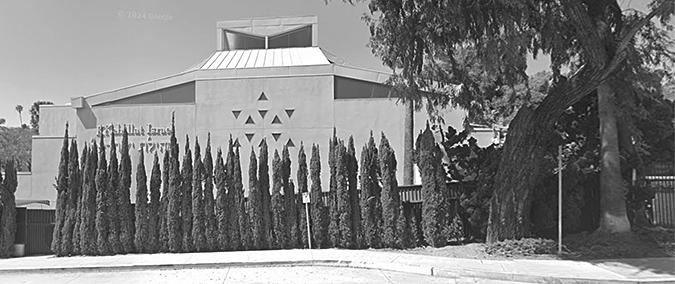
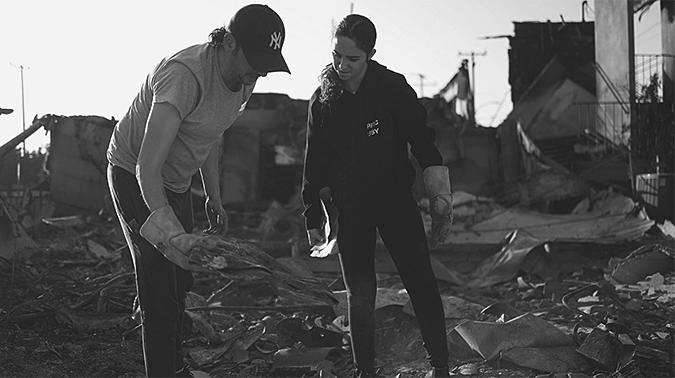
Manacker and her father
through the remains of Pasadena Jewish Temple & Center, which served Pasadena for over 100 years and was destroyed in the Eaton Fire, Jan. 11, 2025, in Pasadena, California.
“You could fill the sanctuary with your congregants who lost their homes,” Soboroff said. “Correct,” Frenkel replied.
“At least this home is standing for so many people,” Bernstein said through tears. “For so many of us, this is our home.” Blazes are ongoing in several parts of Los Angeles County, and conditions continue to stymie containment, though firefighters have made progress. On the other side of the city, in Pasadena, a historic synagogue was destroyed early in the conflagration; the Pasadena Jewish Temple and Center was still burning on Thursday, as a GoFundMe began to circulate to collect donations to help the community regroup.
Now, Los Angeles is approaching its first Shabbat since the fires began, with synagogues that are functioning throwing open their doors to evacuees and hosting meals for anyone who needs one as part of a broad Jewish communal relief effort. Congregation Or Ami, located in Calabasas near a new — but quickly contained — Kenneth Fire announced that it would hold services at de Toledo High School, a Jewish school located several miles away from the forests that have fueled the fires.
On his Instagram page on Thursday, Reuben, a one-time professional percussionist who retired from Kehillat Israel in 2014, said he already had plans for the evening.
room, where he showed a single suitcase that held all he took from his home. “Tomorrow, I’ll be playing drums — not mine, because they burned up — at Temple Isaiah at 6:15 in Los Angeles for their jazz service, and that will probably give me some joy and some peace.”
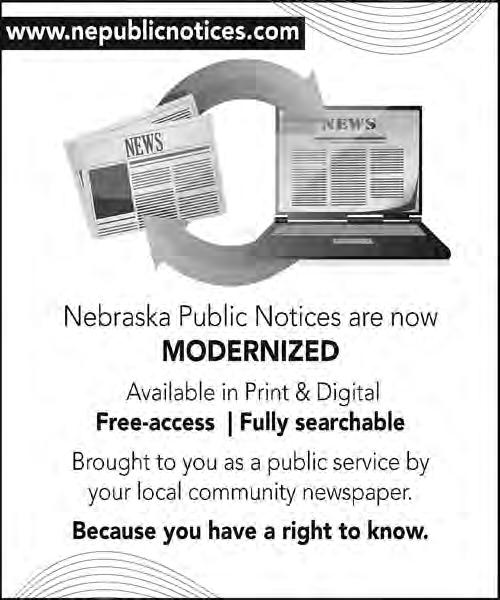
http://www.prevlink.org

CLASSIFIED ADVERTISING in over 150 newspapers. Reach thousands of readers for $225/25 word ad. Contact the Jewish Press or call 1-800-369-2850.
HELLO NEBRASKA! Introducing www.nepublicnotices.com, a new public notice website presented as a public service by all Nebraska newspapers. Free access, fully searchable – because democracy depends upon open government and your right to know.
AFFORDABLE PRESS Release service. Send your message to 155 newspapers across Nebraska for one low price! Call 1-800369-2850 or www.nebpress.com for more details.
SWITCH AND save up to $250/year on your talk, text and data. No contract and no hidden fees. Unlimited talk and text with flexible data plans. Premium nationwide coverage. 100% U.S. based customer service. For more information, call 1-877-768-5892
PORTABLE OXYGEN Concentrator? May be covered by Medicare! Reclaim independence and mobility with the compact design and long-lasting battery of Inogen One. Free information kit! Call 855-385-3580.
JEFFERSON COMMUNITY Health & Life, Fairbury, Neb., seeking full-time behavioral health therapist for JCH&L and Blue Valley Behavioral Health, Fairbury: mental health therapist, family and marriage therapist or clinical social worker. Competitive salary and benefits. Apply online at https://www.jchealthandlife.org/careers/ For more information contact Sandy Bauer, HR, at 402729-6850.
HOME SERVICES
DOES YOUR basement or crawl space need some attention? Call Thrasher Foundation Repair! A permanent solution for waterproofing, failing foundations, sinking concrete and nasty crawl spaces. FREE Inspection & Same Day Estimate. $250 off ANY project with code GET250. Call 1-844-958-3431.
WANTED TO BUY
WE BUY 8,000 cars a week. Sell your old, busted or junk car with no hoops, haggles or headaches. Sell your car to Peddle. Easy three step process. Instant offer. Free pickup. Fast payment. Call 1-855-910-0760.
Peter Yarrow, one-third of the hit-making 1960s folk group Peter, Paul and Mary, and a Jewish activist who promoted Israeli-Palestinian coexistence and other progressive causes, died Tuesday at age 86.
The longtime resident of Manhattan’s Upper West Side entered hospice last month. The cause of death was bladder cancer.
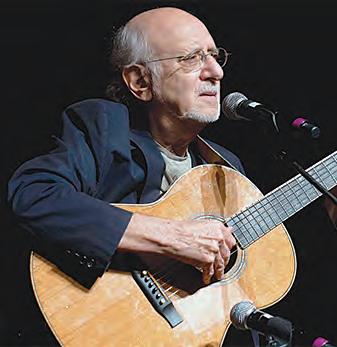
Yarrow was a Cornell graduate playing in Greenwich Village clubs during the early 1960s folk revival when manager and musical impresario Albert Grossman, who also steered Bob Dylan’s career, suggested he team up with the Kentucky-born singer Mary Travers. Travers in turn proposed they include Paul Stookey.
After polishing their act at clubs in the Village like the Bitter End and the Gaslight, the trio signed with Warner and went on to record a series of hits, including folk standards like Lemon Tree and 500 Miles, and compositions by other revivalists, including Pete Seeger’s If I Had a Hammer and Dylan’s Blowin’ in the Wind.
Their debut album, Peter, Paul and Mary, reached Billboard magazine’s Top Ten for 10 months, including seven weeks at No. 1. They sang If I had a Hammer at the August 1963 March on Washington, where Martin Luther King Jr. delivered his I Have a Dream Speech
Yarrow wrote the music for the group’s best-known composition, Puff, the Magic Dragon, with lyrics by his Cornell classmate Leonard Lipton. The song became a standard both at summer camps and in college dorm rooms, where the counterculture saw drug references that Yarrow always denied were there.
In 1970, Yarrow served three months in prison for taking “improper liberties” with a 14-year-old girl who came to his Washington, D.C., hotel room for an autograph. President Jimmy Carter granted a presidential pardon to Yarrow in 1981, on the last day of his presidency. Yarrow apologized for the incident, saying that “it was an era of real indiscretion and mistakes by categorically male performers. I was one of them. I got nailed. I was wrong. I’m sorry for it.”
The conviction would occasionally lead to the cancellation of concerts at which he was scheduled to appear.
The group performed regularly well after the folk revival faded. In a 1982 concert at Carnegie Hall they first sang Light One Candle, Yarrow’s song about the Jewish holiday of Hanukkah. Yarrow said he wrote the song (whose lyrics include “Light one candle to bind us together with peace”) to express his opposition to Israel’s war that year in Lebanon; the trio performed it the next year in Jerusalem to a large and mostly enthusiastic audience.
Yarrow was a supporter of the Israeli left-wing group Peace Now, which advocates for a two-state solution to the IsraeliPalestinian conflict. In 2007 he traveled to Israel to promote his anti-bullying program, Operation Respect: Don’t Laugh at Me, in a trip sponsored by The America-Israel Friendship League.
“It is not proposing peace but it teaches children the skills of building peace in their own lives and that can translate into a perspective that they can bring into adulthood,” he told an interviewer.
Yarrow was born in 1938 in New York City. His mother was a
high school teacher in Manhattan; his father, who emigrated from Ukraine at age 16, was a lawyer who helped create Radio Free Europe, a U.S. propaganda channel launched during the Cold War. His parents divorced when he was five. According to Yarrow, he had no contact with his father until his mid-30s, and credited his mother with instilling in him progressive values.
“What was important was learning. It was a Jewish family,” he told the Jewish Post in an interview. “There was money for education of every sort. There was money for music lessons, summer camp and for her children, but not for jewelry or Rolex watches. She never stopped working. She was really focused on things of great importance. This is where my value system arose and my commitment to being an activist was what she embraced.”
Yarrow attended the Interlochen music camp in Michigan, and studied physics and painting at New York’s High School of Music and Art, part of what is now LaGuardia High School. He was a physics major at Cornell before switching to psychology. In the Jewish Post interview he said remained committed to Israel despite his disappointment with its increasingly rightwing politics.
“I’m not going to stop the dialogue,” he said. “I’m going to stand up for what is wonderful about Israel and not let what I consider to be a destructive policy destroy my commitment to making Israel all that it can be, fulfilling the promise of the creation of the Jewish State. And I have the same feelings about the Palestinians.”
Yarrow’s widow, Mary Beth McCarthy, is the niece of Eugene J. McCarthy, the Minnesota senator who ran for the Democratic presidential nomination in 1968 on a platform opposing the war in Vietnam. Yarrow and Mary Beth divorced in 1991 and remarried in 2022. He is survived by her and their two children, Christopher and Bethany.
Travers died in 2009. Paul Stookey is 87.


